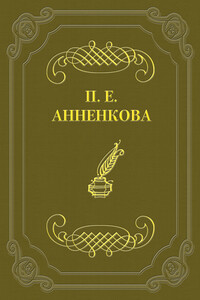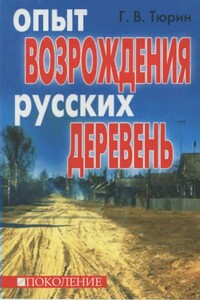The Boy Scouts In Russia - [29]
Try as he would, Fred could not think of a means of getting away. To escape from five mounted men by slipping off the horse and running for it was manifestly impossible. He gave up that idea before he even elaborated upon it. But soon the glimmering dawn of an idea did come to him. The pace slackened, and he noticed that he and Schmidt were falling behind. The lieutenant called out sharply, and Schmidt, growling to himself beneath his breath, used his spur and brought his horse up into alignment with the others again. But only for a hundred yards or so. Then the horse faltered and fell behind again. Now the lieutenant reproved Schmidt sharply.
"I'm sorry, Herr Lieutenant," said Schmidt. "My poor beast is very tired, and he is carrying an extra burden. He has had more work to do to-day than any of the others. If you would permit me to drop behind and come in alone-it is not so far now?"
"Very well," said the lieutenant. "We'll never get there if we hang back waiting for you." And he gave the word to ride on.
Schmidt at once began to take things more easily. Fred heard him grunting to himself.
"Those verdamter young officers!" he grumbled. "Just because they have a pair of shoulder straps, they think they know it all! I would like to put some of them across my knee!"
Fred knew enough of German discipline to be vastly amused by this. But he had no time now to think of trifling things. His whole energy was devoted to finding some way to turn this new circumstance to his own advantage. It seemed to him that there ought to be some way of managing it. And in a moment he got the idea. Schmidt was as tired as his horse, or even more so, and by this time he was swaying in his saddle and half asleep, as a trained horseman often does. Fred leaned forward and very quietly cut the saddle girth almost through. He knew that the slightest strain would finish the work. Schmidt was utterly unconscious of what was going on. Fred could tell, from the man's breathing, just what his condition was. He would snore a little and then, with a start, he would arouse himself, breathing normally for a minute. Then the snoring would start again. He was trusting himself entirely to his horse.
Dusk had fallen now, and Fred decided that it was time to see if his plan was feasible. He took a handkerchief from his pocket, rolled it into a ball, and flung it straight ahead, so that it fell, unrolling, right before the horse's eyes. The effect was inevitable. The frightened horse reared. At the strain the severed girth gave, and the saddle, rolling, spilled both Schmidt and Fred into the road, while the horse bolted. Fred lay still, watching Schmidt, who rose, cursing fluently, and stood for a moment staring stupidly after his horse. Then he began to call, and broke into the awkward, lumbering run of the cavalryman.
Fred might have slipped away then, but he was sure that Schmidt would catch the horse, which must, he thought, be trained to stop even after a momentary panic. And it was not his plan to seize a chance that might after all not be as good as it looked. He wanted to make as sure as possible of getting away. And now, as soon as Schmidt had started after the horse, he crawled over to the saddle, which lay where it had fallen. He took the heavy revolver from the holster and was duly grateful for one thing he had noticed-these Uhlans carried no carbines. Their only weapons, seemingly, were their lances and the revolvers in their holsters.
He was not a moment too soon. Schmidt came back almost at once, leading his horse. He was scolding it for running, and he was also expressing his opinion of government saddles and leather. He found the broken girth, and sat down at once to mend it. Fred scarcely dared to breathe for a moment. But Schmidt did not notice the empty holster, and though he growled and swore when he saw how the girth had snapped, he did not seem to notice that it had been cut almost through.
Fred went over and looked at him. Then, idly, indifferently, he went to the horse, which was standing perfectly still, though its flanks were still heaving. Fred patted the horse's head. Schmidt glanced around at him. His back was turned, and he seemed to see nothing worthy of attention in Fred's attitude.
And then, with one spring, Fred was on the horse's back, and, bending low, was urging the tired animal back over the road he had travelled so slowly. With a cry of mingled rage and surprise Schmidt leaped up and began shouting. But the horse, ready enough to obey when it was running riderless away, now obeyed the more convincing orders of its rider. Fred, moreover, was a welcome contrast to Schmidt's big bulk; there was a difference of at least seventy pounds.
Fred turned once to look at Schmidt, and saw him staring with an expression of stupefaction at the empty holster. Then he devoted himself entirely to the road ahead. It was as he had thought and hoped; Schmidt did not have another pistol. And, with Fred urging him on, the horse galloped on as if it had been really fresh.

«Ваше величество, позвольте матери припасть к стопам вашего величества и просить, как милости, разрешения разделить ссылку ее гражданского супруга. Религия, ваша воля, государь, и закон научат нас, как исправить нашу ошибку. Я всецело жертвую собой человеку, без которого я не могу долее жить. Это самое пламенное мое желание. Я была бы его законной супругой в глазах церкви и перед законом, если бы я захотела преступить правила совестливости. Я не знала о его виновности; мы соединились неразрывными узами. Для меня было достаточно его любви…».

В книге рассказывается история главного героя, который сталкивается с различными проблемами и препятствиями на протяжении всего своего путешествия. По пути он встречает множество второстепенных персонажей, которые играют важные роли в истории. Благодаря опыту главного героя книга исследует такие темы, как любовь, потеря, надежда и стойкость. По мере того, как главный герой преодолевает свои трудности, он усваивает ценные уроки жизни и растет как личность.

Текст воспроизведен по изданию: Письма Бичурина из Валаамской монастырской тюрьмы // Народы Азии и Африки, № 1. 1962.

Плачевная ситуация в российских деревнях известна всем. После развала масштабной системы государственного планирования исчезли десятки и сотни тысяч хозяйств, произошел массовый отток населения из сельских районов, были разворованы последние ценности. Исправление ситуации невозможно без эффективного самоуправления в провинции.Организованный в 1997 году Институт общественных и гуманитарных инициатив (ИОГИ) поставил перед собой цель возрождения сельских районов Архангельской области и добился уникальных результатов.

В настоящей книге Конан Дойл - автор несколько необычных для читателя сюжетов. В первой части он глубоко анализирует произведения наиболее талантливых, с его точки зрения, писателей, как бы открывая "волшебную дверь" и увлекая в их творческую лабораторию. Во второй части книги читатель попадает в мистический мир, представленный, тем не менее, так живо и реально, что создается ощущение, будто описанные удивительные события происходят наяву.